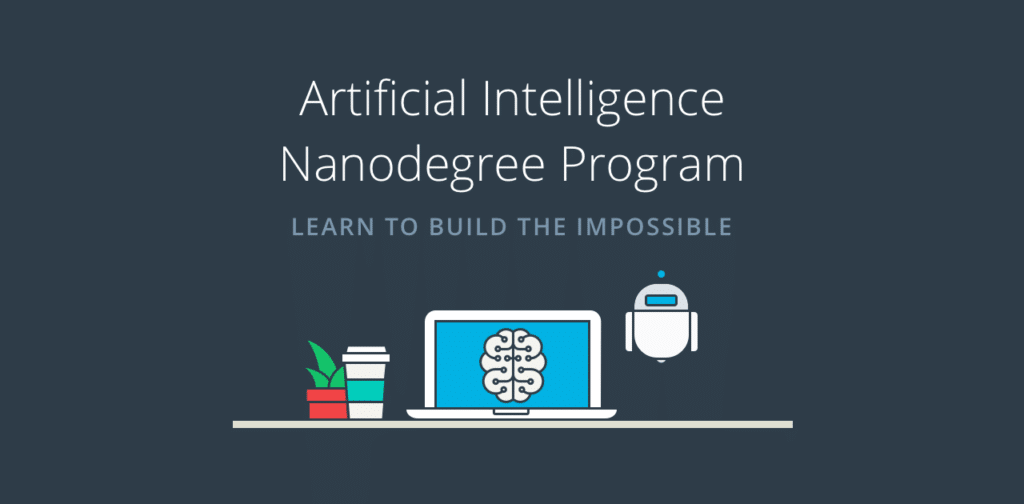Find the right Artificial Intelligence nanodegree program for you.
Start Learning
At Udacity, we believe applications of artificial intelligence will bring transformative change to all industries, and not in some distant science-fiction future—we are seeing rapidly growing demand for AI-related skills right now, and new artificial intelligence jobs are emerging every day. This is exactly why we created our recently announced Artificial Intelligence Nanodegree program.
Many of these jobs are still very new however, and we’ve learned from our program applicants—who already number in the thousands!—that while they’re excited about their prospects, they also have questions about exactly what kinds of jobs they’ll be able to pursue after graduating from this program.
So we took it upon ourselves to answer this question. To begin, we needed concrete data. We looked at thousands of job descriptions posted on common job hunting sites like Stack Overflow, Indeed, and Hacker News, and we found some very interesting trends for those considering careers in artificial intelligence.
Heads up: I’m going to link to a bunch of job descriptions. These companies aren’t affiliated with Udacity, but their job posts are really instructive!
The most popular job title: Machine Learning Engineer
Machine Learning Engineer (example from Hipmunk) is the single most popular title for AI-related jobs. However, the title is often used very generally, so it is important to look closely at the actual descriptions for any given role. When we did so, we found that most were referring to one of three categories:
- Natural Language Processing (Human API)
- Computer Vision (Eyequant)
- Predictions/Insights/Recommendations (Gametime)
These first two feature prominently in our AI program curriculum, and the third we address in two other existing Nanodegree programs (see below).
They key takeaway here, is to make sure to explore Machine Learning Engineer roles, as these employers are often seeking candidates with AI skills and experience.
Aligning with demand
All of our career-track Nanodegree programs are built to align with employer demand when it comes to the skills we teach and the roles we prepare you for. This is one of many reasons why our curriculum and hiring partnerships are so critical to our approach—what better way to understand demand than to work directly with the leading companies in the field?
We designed the Artificial Intelligence Nanodegree program to be a two-term program that first introduces the fundamentals of AI, then allows you to focus on your area of interest, whether that’s Natural Language Processing, Computer Vision, or Speech Recognition. Based on evidence we’re already seeing in the AI jobs market—and insights gleaned from our partners—we see these three specializations as being of primary importance to anyone pursuing a career in artificial intelligence.
Machine learning & predictive analytics
For students interested in Predictions and Insights, we recommend our Machine Learning Engineer and Predictive Analytics for Business Nanodegree programs—they teach you virtually everything you need to know to successfully pursue these kinds of roles. The Machine Learning program focuses primarily on training machines with large data sets, whereas the Predictive Analytics program grounds prediction generation in the world of data science.
Here again, partners are key to understanding and anticipating employer demand. Contributions from Kaggle were invaluable when building our Machine Learning curriculum, and partnerships with industry leaders Alteryx and Tableau help ensure that our Predictive Analytics graduates are equipped with the most important skills for the field.
The artificial intelligence & machine learning difference
A surprising number of companies are building machine learning and/or artificial intelligence features into their products. Many of them are relying on their existing engineering teams—rather than special research departments—to bring AI experience to the table (Codecademy). So keep in mind that experience with the AI space is becoming a differentiator in employer minds, and could help you land that awesome new job.
One related trend is the continuing emergence of roles that blend AI skills with something traditional software engineers are very familiar with: deploying software in a production environment. In our research, we saw quite a few companies looking for engineers specifically to help productionize and deploy AI systems. We expect to see this category grow as more companies roll out AI-powered functionality. (Second Spectrum)
The PhD question
When looking at AI jobs, you’re going to see a LOT of PhD requirements. But don’t be deterred! Here are a couple things you should know:
- A lot of companies have job titles that include “Research” and/or “Scientist.” Be aware that these tend to have stricter requirements on graduate degrees. But, also know that the same company may have Engineering roles which aren’t as strict. Take a look at this pair from Recursion Pharma: Machine Learning Engineer vs Deep Learning Scientist.
- The requirement for a PhD is going to change over time. These techniques have been so cutting-edge that a graduate degree has been about the only way for employers to find candidates with a few years of experience. But today, most of this research is published in the open, creating opportunities for students to build the same level of expertise.
As Yann LeCun (Director of AI Research at Facebook) observed during his recent appearance with Sebastian Thrun on Udacity Talks, it’s about your experience, not necessarily the degree. Here’s what he said when Sebastian asked him if his engineer population could include Udacity alumni:
“They could be people with Nanodegrees, if they have done something that we think is interesting!”
We built the Artificial Intelligence Nanodegree program with the express goal of giving you valuable hands-on experience—the kind of experience that someone like Yann LeCun might look at and find really compelling. We’ve already got IBM Watson and Didi Chuxing excited to talk to our graduates about artificial intelligence jobs, and we expect to partner with many more fantastic companies in the very near future*.
Are you ready to start preparing for your future in this incredible field?
Artificial Intelligence Nanodegree Program
* Interested in joining amazing companies like IBM and Didi in becoming a hiring partner, and getting first looks at the next generation of AI talent? Email us today! If you’re interested in being a hiring partner as well, make sure to mention that too!





